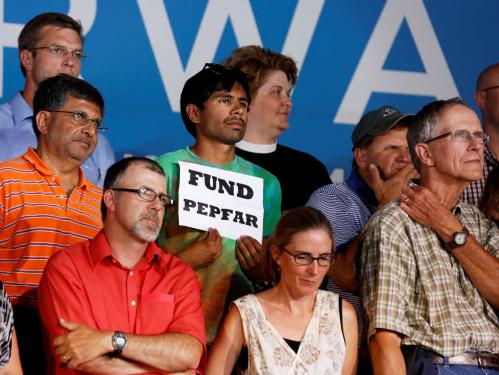This paper was published online in October 2008.
Introduction
From the vantage point of 2008, some of the most memorable initiatives of U.S. international economic leadership—the Paris and Louvre Accords, the support for Poland and Russia after the fall of communism, the Uruguay Round, and the Mexican Financing Loan—seem like quaint reminders of a simpler time. In the coming years, the exercise of international economic leadership will surely prove more complex than in the past. The very success of the American vision of a global spread of vibrant and competitive markets has created a huge, rapidly integrating private economy of trade and finance much less amenable to guidance, let alone control, by governments. Unlike in diplomacy and defense, where non state actors are growing in importance but still a side show, in international economics, households, corporations, labor unions, and non-profits are now the dominant players in most parts of the world. While they respond to national laws and policies, their interests are varied and their operations often span borders.
And while uni-polarity may still be debatable in the security ream, multi-polarity is a reality in the security realm. Following 35 years in which the share of world output commanded by the G7 leading economies remained stable around 65 percent and the so-called BRIC (Brazil, Russia, India, China) economies around 7 percent, in the past five years, the BRIC share has risen to over 11 percent and the G7 fallen to 58 percent, and by 2030, the two groups will converge towards parity at around one third of world output each, according to Brookings scholar Homi Kharas. The rapid growth of the rising powers is creating enormous opportunities but also putting considerable strain on resources from food to water to energy, just as humanity is waking up to the urgent need to wean the economy from its centuries-long dependence on carbon. Growing global integration also creates growing interdependence and mutual vulnerability. To borrow a phrase from the recent banking crisis, we are now all too interconnected to fail. Threats to growth and stability now reverberate broadly, whether from financial market excesses, food shortages, pandemics, or vortexes of conflict and poverty.
At this moment of consequential challenges that even the most powerful nations cannot resolve on their own, there is greater need than ever before for leadership to help manage growing international economic linkages. And at a time when the rising powers are flexing their economic muscle but not yet prepare to take on the burdens of global leadership, the need for the United States to provide leadership continues undiminished.
But while the need for U.S. leadership in the global economy is clear, the capacity is less so. How well prepared are we to lead—especially when it will require doing so through cooperation and persuasion and by example? How prepared are our political leaders—especially when many Americans believe they are victims rather than beneficiaries of global competition? The remainder of this paper will explore the changing context for U.S. international economic leadership, review our economic goals, and discuss the adequacy of the instruments available for pursuing those goals.
The Brookings Institution is committed to quality, independence, and impact.
We are supported by a diverse array of funders. In line with our values and policies, each Brookings publication represents the sole views of its author(s).
